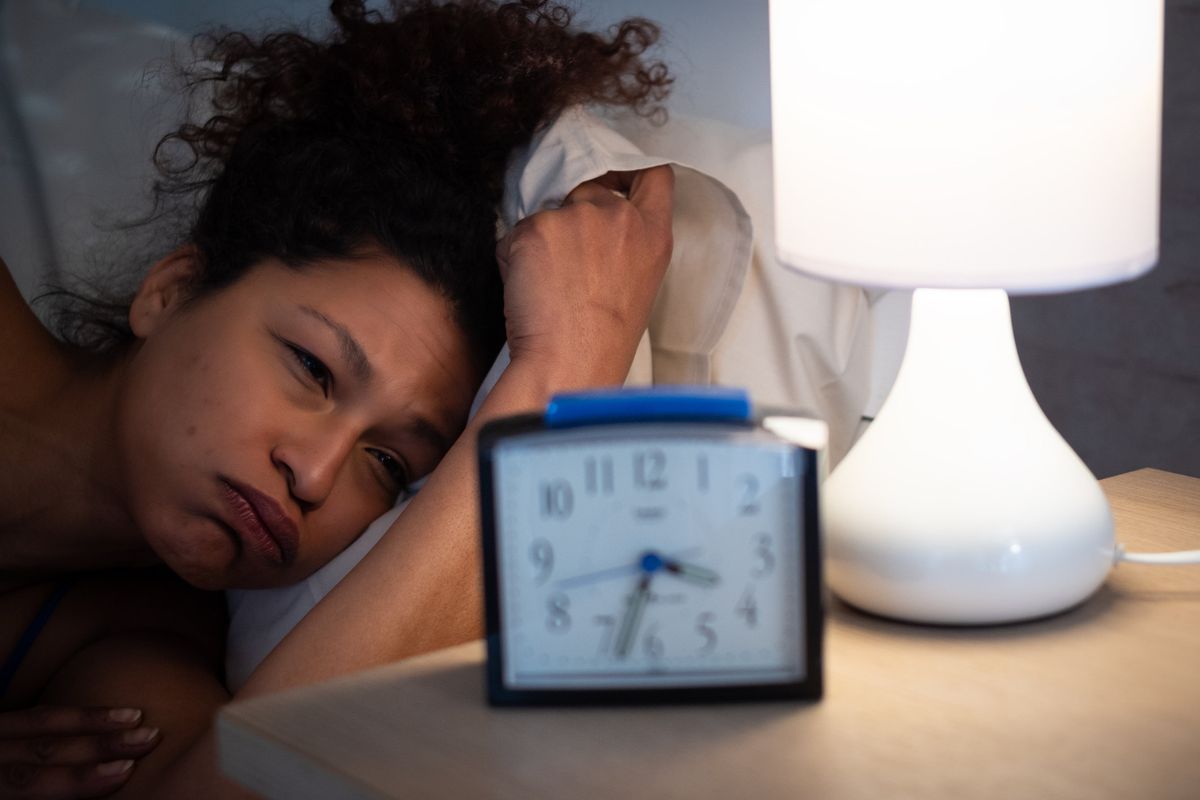Layoffs. Working from home. Homeschooling children. Lack of physical contact with friends and family members. These are all issues the COVID-19 pandemic has brought to our lives — not to mention worries over our health and that of our loved ones.
These concerns can lead to an increase in anxiety, depression and stress, some of the prime offenders when it comes to sleep troubles, which are on the rise during the pandemic.
According to Dr. Jennifer L. Payne, founder and director of the Johns Hopkins Women's Mood Disorders Center and member of HealthyWomen's Women's Health Advisory Council, "Most people have had at least intermittent trouble sleeping [during the pandemic]."
But it isn't all bad news: Some people who work from home have improved their sleep, but those instances are the exception.
Dr. Brooke G. Judd, section chief of Sleep Medicine at Dartmouth-Hitchcock Medical Center, wrote via email, "The negative effect of this is that when people don't have to be up at a regular time in the morning and don't have to be at work or school throughout the day, they can drift into very irregular sleep patterns."
For example, napping during the day, staying up late and sleeping in late in the morning can all impact the ability to get a good night's sleep.
Sleep and COVID-19 stress, anxiety and depression
There are two ways the pandemic has affected people's sleep: Some are sleeping too much and some are sleeping too little.
"In general, most people when stressed sleep less and wake up early in the a.m. or have trouble falling asleep," Payne wrote. "Occasionally some people will either stay in bed more or sleep more to try to avoid dealing with what they are stressed about — but most have trouble sleeping."
Both anxiety and depression can contribute to insomnia. Anxiety can make it more difficult to fall and/or stay asleep, while depression can cause people to wake up earlier than they'd like to.
"Interestingly, the association of depression and anxiety with insomnia is bidirectional, meaning that not only do depression and anxiety cause insomnia, but people with chronic insomnia are more likely to develop anxiety and/or depression over time," Brooke wrote.
In the short term, sleep loss can lead to fatigue, difficulty concentrating, memory issues and irritability, Payne wrote. Long term, sleep disorders increase the risk for medical issues, including obesity, heart disease and diabetes.
"Sleep and mental health issues are often connected and sleep disturbance can be a sign of psychiatric illness — but not always," Payne wrote. "Treating psychiatric illness often helps or eliminates sleep issues, but treating sleep issues does not treat psychiatric illness."
Practicing sleep hygiene
"The best approach to improving our sleep is to follow basic sleep hygiene practices like eliminating ambient light in your bedroom," Saundra Jain, Psy.D., a psychotherapist and member of HealthyWomen's Women's Health Advisory Council, wrote in an email.
Other tips Jain recommends are using blackout shades or a sleep mask to block out light, eliminating caffeine beginning in late afternoon, and avoiding naps during the day. She also advises people to take a warm bath or shower before bedtime, avoid electronics at least an hour before going to bed, and not to use them once you're in bed. Last, avoid heavy meals at bedtime and exercise at least 30 minutes a day.
"One thing I have patients who are having trouble with insomnia do is to listen to something white noisy or calming (rain, chimes, ocean) with earphones as they fall asleep," Payne wrote. "Over time, this trains their brain to go to sleep when they hear that sound track and if they wake up early they can put their earphone back in, turn it on and they will almost automatically go back to sleep."
If you're unable to fall asleep in 30 minutes, get out of bed and do something else.
"Getting frustrated [because you're] not falling asleep in bed sets up a cycle where people have anticipatory anxiety about not sleeping that becomes a self-fulfilling prophecy," Payne said.
Turning to the professionals
If sleep hygiene practices aren't helping, it could be time to seek out professional help for insomnia.
"Sometimes people have persistent difficulty with sleep, even when the underlying problem is addressed," Brooke wrote. "A significant percentage of people develop what's easiest to think of as a 'learned' insomnia — this is unintentionally learned, but their brain essentially learns a pattern of thoughts and behaviors around sleep that persist even when the underlying problem that seemed to initially cause the insomnia is no longer an issue."
While reaching for an over-the-counter or prescription medication might be tempting, it's not the best strategy.
"Sleep medications tend to work best when taken intermittently for short term, transient insomnia difficulties — they are NOT the best (or recommended) treatment for chronic insomnia," Brooke wote.
Instead, people could benefit from cognitive behavioral therapy for insomnia (CBT-I) which targets psychological, behavioral and cognitive (i.e.; thought processes one has developed about sleep) factors that perpetuate or exacerbate sleep difficulties," Brooke wrote. "CBT-I is one of the safest and most effective treatments for long term control of insomnia."
Stay the course. If one thing doesn't work, try something else.
"Remember, it's all about progress, not perfection," Jain wrote. "Try to be kind to yourself as you begin to implement these practices."







